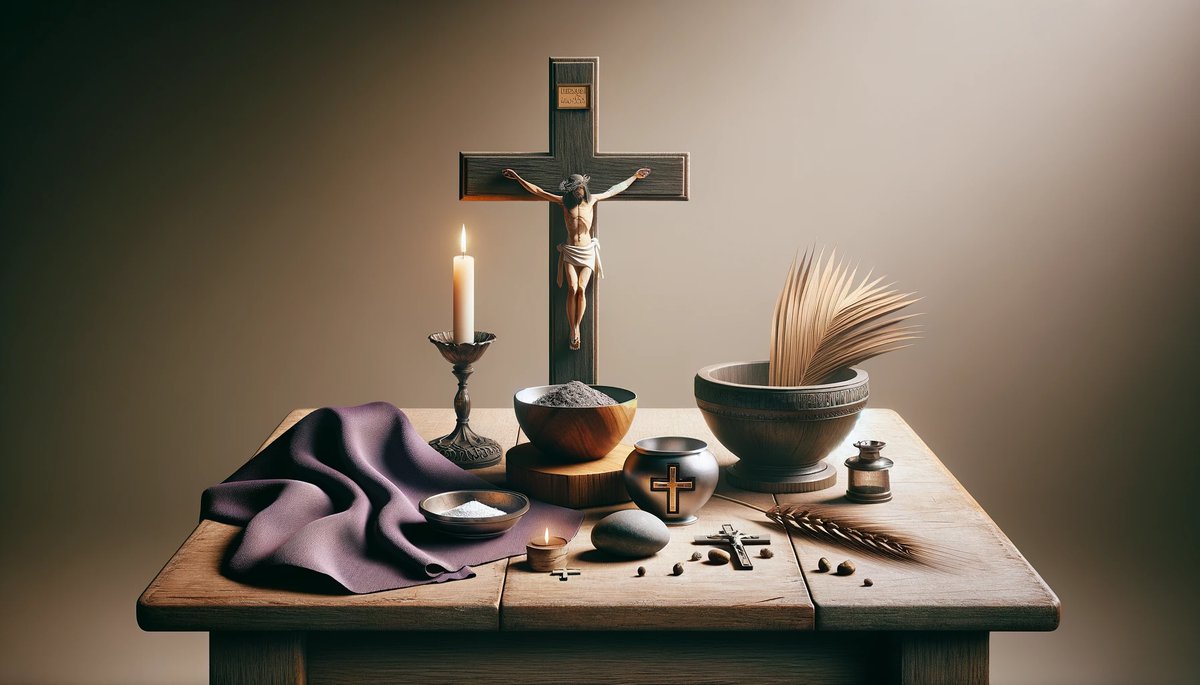Home>Theology and Spirituality>What Does The Wine Symbolize In Communion


Theology and Spirituality
What Does The Wine Symbolize In Communion
Published: February 25, 2024
Peter Smith, Editorial Director at Christian.net, combines deep insights into faith, politics, and culture to lead content creation that resonates widely. Awarded for his contributions to religious discourse, he previously headed a major organization for religious communicators, enhancing dialogue on faith's societal impacts.
Discover the significance of wine in communion and its theological and spiritual symbolism. Explore the deeper meaning behind the use of wine in religious practices.
(Many of the links in this article redirect to a specific reviewed product. Your purchase of these products through affiliate links helps to generate commission for Christian.net, at no extra cost. Learn more)
Table of Contents
Introduction
Communion, also known as the Eucharist or the Lord's Supper, holds a central place in Christian worship and theology. It is a sacred ritual that commemorates the Last Supper, a significant event in the life of Jesus Christ. At the heart of this ritual are the elements of bread and wine, which hold profound symbolism and spiritual significance for believers.
The act of partaking in communion is a deeply meaningful and symbolic practice for Christians worldwide. It serves as a tangible expression of their faith and a solemn remembrance of the sacrificial love of Jesus Christ. The elements of bread and wine are not mere symbols; they are imbued with profound spiritual meaning that transcends their physical properties.
In this article, we will delve into the historical, biblical, and spiritual significance of wine in communion. We will explore the symbolism of wine in the context of communion, its religious and spiritual importance, and its role in communion practices across different cultures and traditions. By examining these aspects, we can gain a deeper understanding of the rich tapestry of meaning woven into the simple act of partaking in the wine during communion.
Read more: What Does Holy Communion Symbolize
The Historical and Biblical Significance of Wine in Communion
The historical and biblical significance of wine in communion is deeply rooted in the origins of the Christian faith. The practice of using wine as a central element in communion can be traced back to the Last Supper, a pivotal event in the life of Jesus Christ. According to the Gospels of Matthew, Mark, and Luke, during the Last Supper, Jesus shared bread and wine with his disciples, instructing them to partake of these elements in remembrance of him. This act of sharing the bread and wine symbolized the impending sacrifice of Jesus' body and the shedding of his blood for the redemption of humanity.
In the historical context of the ancient Near East, wine held significant cultural and religious symbolism. It was associated with joy, celebration, and abundance, and was often used in religious rituals and communal gatherings. In the context of the Last Supper, the use of wine as a symbol of Christ's blood carries profound significance, representing the new covenant between God and humanity.
Biblically, the symbolism of wine in communion is intricately linked to the concept of atonement and redemption. In the Old Testament, the shedding of blood was central to the sacrificial system, serving as a means of atonement for sin. The New Testament portrays Jesus as the ultimate sacrificial lamb whose blood brings about the forgiveness of sins and reconciliation with God. The act of drinking the wine during communion thus becomes a powerful symbol of partaking in the redemptive work of Christ and experiencing spiritual renewal and communion with God.
Furthermore, the historical and biblical significance of wine in communion underscores the continuity of the Christian faith and its connection to the teachings and actions of Jesus Christ. Through the centuries, the ritual of communion has served as a tangible link to the foundational events of Christianity, preserving the memory of Christ's sacrifice and the establishment of the new covenant.
In summary, the historical and biblical significance of wine in communion is multifaceted, encompassing cultural, religious, and theological dimensions. It serves as a poignant reminder of Christ's sacrificial love, the redemptive power of his blood, and the enduring legacy of the Last Supper. This rich historical and biblical tapestry infuses the act of partaking in the wine during communion with profound meaning and spiritual significance for believers across the ages.
The Symbolism of Wine in Communion
The symbolism of wine in communion is deeply profound, carrying layers of meaning that resonate with the core tenets of the Christian faith. At its essence, wine symbolizes the blood of Jesus Christ, representing the sacrificial offering that brings about the forgiveness of sins and the reconciliation of humanity with God. This symbolism is rooted in the biblical narrative of the Last Supper, where Jesus shared the cup of wine with his disciples, declaring it to be the "blood of the covenant, which is poured out for many for the forgiveness of sins" (Matthew 26:28).
The act of partaking in the wine during communion is a solemn and reverent acknowledgment of Christ's sacrificial love and the redemptive power of his blood. It serves as a tangible expression of faith, as believers symbolically receive the spiritual nourishment and cleansing that flow from the atoning work of Christ. The symbolism of wine in communion underscores the central Christian belief in the transformative power of Christ's sacrifice, emphasizing the profound spiritual implications of his death and resurrection.
Moreover, the symbolism of wine in communion extends beyond individual redemption to encompass the communal aspect of the Christian faith. As believers partake in the wine together, they affirm their unity in Christ and their participation in the body of believers. The shared experience of drinking from the same cup symbolizes the communal bond and fellowship that characterize the Christian community, emphasizing the interconnectedness of believers as they partake in the spiritual blessings made possible through Christ's sacrifice.
Additionally, the symbolism of wine in communion evokes the concept of spiritual nourishment and sustenance. Just as physical nourishment is essential for sustaining life, the symbolic act of drinking the wine signifies the spiritual sustenance and renewal that believers receive through their union with Christ. It serves as a poignant reminder of the ongoing spiritual nourishment that believers derive from their relationship with Christ, reinforcing the idea of spiritual growth and sustenance within the Christian journey.
In essence, the symbolism of wine in communion encapsulates the core theological principles of the Christian faith, emphasizing the redemptive work of Christ, the communal unity of believers, and the spiritual nourishment derived from union with Christ. This rich symbolism infuses the act of partaking in the wine with profound spiritual significance, serving as a powerful expression of faith and a tangible reminder of the central truths of the Christian gospel.
The Spiritual and Religious Importance of Wine in Communion
The spiritual and religious importance of wine in communion is deeply rooted in the theological fabric of the Christian faith. At the heart of this significance lies the concept of spiritual nourishment and transformation. In the context of communion, wine symbolizes the blood of Jesus Christ, signifying the sacrificial offering that brings about the forgiveness of sins and the reconciliation of humanity with God. This symbolism holds profound spiritual implications, as it underscores the central Christian belief in the redemptive power of Christ's sacrifice.
From a spiritual perspective, the act of partaking in the wine during communion represents a sacred encounter with the presence of Christ. It is a tangible expression of faith, as believers symbolically receive the spiritual nourishment and cleansing that flow from the atoning work of Christ. This act serves as a solemn acknowledgment of Christ's sacrificial love and the transformative impact of his redemptive work on the lives of believers. It is a moment of spiritual communion, where believers are invited to partake in the spiritual blessings made possible through Christ's sacrifice, experiencing renewal, and restoration in their relationship with God.
Furthermore, the religious importance of wine in communion extends to the communal dimension of the Christian faith. As believers partake in the wine together, they affirm their unity in Christ and their participation in the body of believers. The shared experience of drinking from the same cup symbolizes the communal bond and fellowship that characterize the Christian community, emphasizing the interconnectedness of believers as they partake in the spiritual blessings derived from Christ's sacrifice. This communal aspect underscores the shared identity and spiritual solidarity of believers, reinforcing the sense of belonging and mutual support within the Christian community.
In addition, the spiritual and religious importance of wine in communion emphasizes the ongoing nature of spiritual nourishment and sustenance within the Christian journey. Just as physical nourishment is essential for sustaining life, the act of drinking the wine serves as a reminder of the spiritual sustenance and renewal that believers derive from their relationship with Christ. It underscores the continuous spiritual growth and sustenance that believers experience as they remain connected to the life-giving source of Christ's redemptive work.
In summary, the spiritual and religious importance of wine in communion encompasses the profound spiritual nourishment, communal unity, and ongoing spiritual sustenance that believers derive from their relationship with Christ. This significance underscores the transformative impact of Christ's sacrifice on the lives of believers and the communal bond that unites them as participants in the redemptive work of Christ. The act of partaking in the wine during communion thus holds deep spiritual and religious significance, serving as a powerful expression of faith and a tangible reminder of the central truths of the Christian gospel.
The Role of Wine in Communion Practices around the World
The role of wine in communion practices varies across different Christian denominations and cultural contexts, reflecting a rich tapestry of traditions and interpretations. While the core symbolism of wine as representing the blood of Christ remains consistent, the specific practices and customs surrounding its use in communion display a diverse array of expressions and beliefs.
In many Western Christian traditions, such as Roman Catholicism and various Protestant denominations, wine holds a central place in communion practices. It is often served alongside unleavened bread, symbolizing the body and blood of Christ. The use of wine in these traditions is typically accompanied by specific liturgical rituals and prayers, emphasizing the sacred nature of the act of partaking in communion. The wine used may vary, with some denominations using red wine, while others may use white wine or grape juice, reflecting theological and practical considerations.
In Eastern Orthodox Christian traditions, the role of wine in communion practices is deeply rooted in ancient liturgical customs and theological symbolism. Wine, often mixed with water, is consecrated during the Divine Liturgy and administered to the faithful using a golden spoon. The use of wine in the Eastern Orthodox tradition underscores the mystical and sacramental nature of communion, emphasizing the spiritual union of the believer with the body and blood of Christ.
Beyond the Western and Eastern traditions, communion practices in various global contexts exhibit unique cultural adaptations and interpretations regarding the role of wine. In some African and Asian Christian communities, indigenous fermented beverages may be used in communion, reflecting the integration of local cultural practices with Christian rituals. These diverse expressions highlight the dynamic interplay between Christian theology and local customs, enriching the global tapestry of communion practices.
Moreover, the role of wine in communion practices extends beyond the ritual itself to encompass theological debates and pastoral considerations. Discussions regarding the use of alcoholic versus non-alcoholic wine, the inclusion of individuals with dietary restrictions, and the accessibility of communion to all believers reflect the ongoing dialogue within Christian communities regarding the practical and symbolic dimensions of communion.
In essence, the role of wine in communion practices around the world reflects the dynamic interplay of theological, cultural, and practical considerations within diverse Christian traditions. While the core symbolism of wine as representing the blood of Christ remains constant, the specific customs and interpretations surrounding its use in communion serve as a testament to the rich diversity and unity of the global Christian faith.
Conclusion
In conclusion, the symbolism and significance of wine in communion are deeply woven into the fabric of Christian theology and spirituality. From its historical and biblical roots to its profound spiritual and religious implications, wine in communion serves as a tangible expression of the core tenets of the Christian faith. The act of partaking in the wine during communion symbolizes the redemptive work of Christ, the communal unity of believers, and the ongoing spiritual nourishment derived from union with Christ.
The historical and biblical significance of wine in communion traces back to the Last Supper, where Jesus shared bread and wine with his disciples, laying the foundation for the ritual that would become central to Christian worship. The use of wine as a symbol of Christ's blood carries profound significance, representing the new covenant between God and humanity and emphasizing the redemptive power of Christ's sacrifice.
The symbolism of wine in communion extends beyond individual redemption to encompass the communal aspect of the Christian faith. As believers partake in the wine together, they affirm their unity in Christ and their participation in the body of believers. The shared experience of drinking from the same cup symbolizes the communal bond and fellowship that characterize the Christian community, emphasizing the interconnectedness of believers as they partake in the spiritual blessings made possible through Christ's sacrifice.
Furthermore, the spiritual and religious importance of wine in communion underscores the ongoing nature of spiritual nourishment and sustenance within the Christian journey. The act of drinking the wine serves as a reminder of the spiritual renewal and growth that believers experience as they remain connected to the life-giving source of Christ's redemptive work.
The role of wine in communion practices around the world reflects the dynamic interplay of theological, cultural, and practical considerations within diverse Christian traditions. While the core symbolism of wine as representing the blood of Christ remains constant, the specific customs and interpretations surrounding its use in communion serve as a testament to the rich diversity and unity of the global Christian faith.
In essence, the symbolism and significance of wine in communion encapsulate the central truths of the Christian gospel, serving as a powerful expression of faith and a tangible reminder of Christ's sacrificial love and the transformative power of his redemptive work. As believers partake in the wine during communion, they engage in a sacred encounter with the presence of Christ, affirm their communal unity, and derive ongoing spiritual nourishment from their relationship with the Savior. This rich tapestry of meaning and symbolism makes the act of partaking in the wine during communion a deeply meaningful and spiritually significant practice for Christians around the world.














